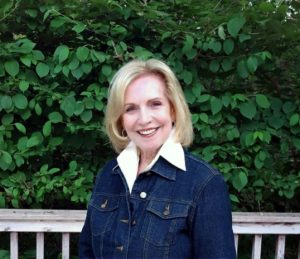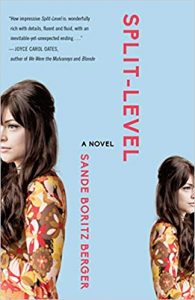Truth or Fiction: Does it Really Matter?
 I believe it was the brilliant, and often quotable, Anna Quindlen who once said: if you are writing fiction, many will believe that what you put down on paper is actually true. Of course, on the flip side, if you profess your work as factual: perhaps in a memoir highlighting tales of a harrowing youth, others may very well narrow their eyes and think: “hmm, really?” Some may flat-out say: “Nah, no way. She’s making that up; I’ll bet it never happened.”
I believe it was the brilliant, and often quotable, Anna Quindlen who once said: if you are writing fiction, many will believe that what you put down on paper is actually true. Of course, on the flip side, if you profess your work as factual: perhaps in a memoir highlighting tales of a harrowing youth, others may very well narrow their eyes and think: “hmm, really?” Some may flat-out say: “Nah, no way. She’s making that up; I’ll bet it never happened.”
So, when I first heard this, a long time ago, just as I’d begun to take my writing seriously, instead of my habitual procrastination and fear, I felt a warm rush of tremendous relief. What was the point, I asked myself, of worrying how my writing would be perceived? Something I obviously could not control. And shouldn’t I write whatever I feel the need to put on paper? Yet, that’s when the ghost of doubt barged through the front door unannounced. Truth? Fiction? Worry, Scurry, Go away! There’s no room for you now.
The wise, often recited, phrase flashed through my mind: “you’re damned if you do, and damned if you don’t.” I was reminded of a lesson I learned, years ago, in one of the many workshops I’d taken hoping to improve my craft. This particular class was taught by a wise, young author, a man who had already published a few very successful books. He stood in front of the crowded classroom, an eclectic mix of singles, moms, dads, and retirees all glued to his mighty presence when he said, “Remember, no matter what you do, people, you will never, ever, please everyone with your writing. “Know now,” he continued, “there will always be someone who doesn’t relate nor believe. Others may spew criticism like spitting cherry pits. Words may cut deep, even border on cruel. As your workshop leader, I don’t encourage that, but sometimes… it just happens. I know because as a new writer, just starting out, it happened to me.”
His words made my tired eyes pop wide open. I quickly checked the room for possible naysayers, but we all looked pretty much the same, a few scanning their pages, perhaps, before making a quick getaway. Some may have considered switching to the silent film class down the hall.
It took some time to realize what he was trying to tell us was: not to settle and to reach higher in order to produce our very best work. To juggle all that while keeping the hovering skeletons of our pasts at bay while we re-worked our stories in an over-heated, creaky classroom, which reeked of floor wax. “If you must” I recall him saying, “when you write, try writing for only one person. Imagine someone still living or long gone, but preferably someone you recall as kind. And, he added: for God sakes, tell the story you need to tell, want to tell, not what you think they will like. That line gave me chills, and my eyes filled with tears.
At the time, I was a newly divorced young mother writing a great deal about my fear of failing, and the daily struggles of desperately wanting to be both a good parent and strong role model for two young daughters. As the oldest and only girl in my childhood home, I had a great deal of responsibility, yet in the outside world I inhabited, I was the youngest of all my friends, sheltered and too often not told the truth. My inside world and outside world clashed on a daily basis. Fodder, I now realize, for good storytelling. Yet, neither world delivered the validation I craved, and so I often felt isolated and alone. Thinking back, there was just one truly special person, though she died suddenly right before I turned sixteen. Yes, I would tell my stories to my beloved grandmother, the one who smiled whenever I walked into a room.
I barely scratched the surface inside my heavy knapsack of insecurity while in that writer’s workshop, but one of the lessons learned was invaluable. If I wanted to be heard and receive honest feedback, I had to become a true participant. I had to really listen and not solely judge. Though it is often remedial and healing, writing has always felt hard, and writing in the first person, specifically terrifying. Yet, because of a slightly masochistic nature, it’s what I choose most of the time. It helps me to better connect with my characters and what they are feeling.
It’s no wonder my first book, The Sweetness, is a historical novel inspired by my own family’s complicated and tragic history during WWII. My latest, Split-Level, also a novel, is inspired by living recklessly through 1970’s suburbia, post-Watergate. Though fiction, both of these stories reflect so many truths learned through a lifetime of both quiet observation and personal experience. It no longer matters who thinks whether this or that happened. The writing is born out of some deep ancestral need. I like to think of it as passion, which reaches beyond fiction and truth. But, as writers, you already know that.
—
After nearly two decades as a scriptwriter and video producer for Fortune 500 companies, Sande Boritz Berger returned to her first passion: writing fiction and nonfiction full time. She completed an MFA in Writing and Literature at Stony Brook University where she was awarded The Deborah Hecht Memorial prize for fiction.
Essays and short stories have appeared in over 20 anthologies including Aunties: “Thirty-Five Writers Celebrate Their Other Mother” by Ballantine, and “Ophelia’s Mom” by Crown. Her novel, The Sweetness, was a semi-finalist in Amazon’s yearly Breakthrough Novel Awards. Sande lives in Manhattan with her husband and has two daughters
Find out more about Sande on her website https://www.sandeboritzberger.com/
Follow her on Twitter https://twitter.com/EZWriter25
SPLIT-LEVEL, Sande Boritz Berger
 In Split-Level, set as the nation recoils from Nixon, Alex Pearl is about to commit the first major transgression of her life. But why shouldn’t she remain an officially contented, soon-to-turn-thirty wife? She’s got a lovely home in an upscale Jersey suburb, two precocious daughters, and a charming husband, Donny. But Alex can no longer deny she craves more―some infusion of passion into the cul-de-sac world she inhabits.
In Split-Level, set as the nation recoils from Nixon, Alex Pearl is about to commit the first major transgression of her life. But why shouldn’t she remain an officially contented, soon-to-turn-thirty wife? She’s got a lovely home in an upscale Jersey suburb, two precocious daughters, and a charming husband, Donny. But Alex can no longer deny she craves more―some infusion of passion into the cul-de-sac world she inhabits.
After she receives a phone call from her babysitter’s mother reporting that Donny took the teen for a midnight ride, promising he’d teach her how to drive, Alex insists they attend Marriage Mountain, the quintessential 1970s “healing couples sanctuary.” Donny accedes―but soon becomes obsessed with the manifesto A Different Proposition and its vision of how multiple couples can live together in spouse-swapping bliss.
At first Alex scoffs, but soon she gives Donny much more than he bargained for. After he targets the perfect couple to collude in his fantasy, Alex discovers her desire for love escalating to new heights―along with a willingness to risk everything. Split-Level evokes a pivotal moment in the story of American matrimony, a time when it seemed as if an open marriage might open hearts as well.
“How impressive Split-Level is: wonderfully rich with details, fluent and fluid, with an inevitable-yet-unexpected ending, inspired throughout is its portrait of a woman whose essential life is an unconscious double-ness/split-ness.”
―Joyce Carol Oates, author of We Were the Mulvaneys and Blonde
“Sande Boritz Berger sets a 1970s Jersey housewife on a provocative collision course in Split-Level, a sharp portrait of female empowerment. Through sensitive insights, a woman finds an honest version of herself after realizing that her ideas on the nuclear family have made her erase vital parts of her identity.”
―Foreword Reviews
BUY THE BOOK HERE
Category: Contemporary Women Writers, How To and Tips

























